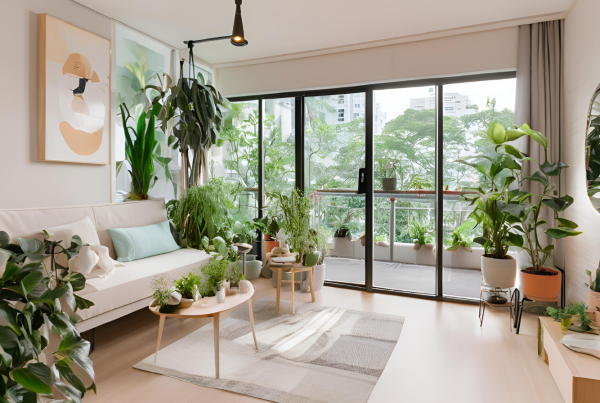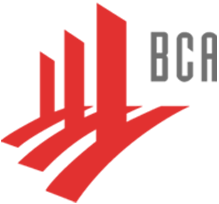The essence of commercial renovation lies not just in the superficial aesthetics but in the creation of spaces that foster productivity, comfort, and a sense of identity. Commercial interior design serves as the cornerstone for businesses aiming to maximize their potential and add value to their operations.
The significance of commercial interior design transcends mere visual appeal. It encompasses the orchestration of environments that cater to the unique needs of individuals, facilitating their workflow and igniting creativity. By curating spaces that resonate with the ethos of the brand, commercial interior designers contribute to the cultivation of cohesive and inspiring work atmospheres.
Within the realm of commercial interior design services, a plethora of offerings cater to various business sectors. From the meticulous reinstatement of office spaces to their original state to the innovative design of modern work environments tailored to reflect the identity and values of brands, each service is intricately crafted to meet the diverse requirements of businesses.
In the realm of Food and Beverage (F&B) establishments, commercial interior design plays a pivotal role in creating inviting and comfortable dining spaces. Beyond the culinary offerings, the ambiance and aesthetics of these spaces are crucial in enticing patrons to return, thus contributing to the success of the establishment.
Similarly, in the retail sector, the strategic use of colors and merchandising displays serves to captivate customers and enhance their shopping experience. Through thoughtful design interventions, commercial interior designers can effectively draw people into retail spaces, thereby boosting foot traffic and sales.
We provide interior design consultation services and offer businesses the opportunity to elevate their spaces to new heights of sophistication and elegance. By integrating opulent elements and bespoke design solutions, these services cater to businesses seeking to create a distinctive and memorable brand experience.
Moreover, the collaboration between commercial interior designers and architects ensures seamless integration of design elements with structural considerations, resulting in harmonious and functional spaces that reflect the essence of the brand.
In essence, commercial renovation is not merely about superficial transformations but about crafting environments that inspire and empower. From reinstating spaces to their original state to orchestrating luxurious design consultations, every facet of commercial interior design is geared towards enhancing the functionality, aesthetics, and identity of businesses.
Beyond commercial spaces, the realm of interior design extends to residential settings, where it serves to create personalized and functional living environments. Whether through meticulous planning or innovative design solutions, interior designers leverage their expertise to transform houses into homes that reflect the unique lifestyles and preferences of their occupants.
Commercial renovation is a multifaceted endeavor that encompasses a myriad of services aimed at optimizing spaces for productivity, comfort, and aesthetic appeal. By harnessing the expertise of commercial interior designers, businesses can unlock the full potential of their spaces and create environments that resonate with their brand identity and values.
Cost Estimates for Restaurants, Retail Shops, and Offices in Singapore
When considering renovation projects, it’s crucial to factor in the associated costs. Based on available data and industry insights, here are rough estimates for average cost ranges per square meter (sqm) across different commercial spaces:
Restaurants typically range from S$1,000 to S$5,000 per sqm, depending on factors such as the level of customization, quality of materials, and complexity of design. This wide range accounts for variations in restaurant types, from casual eateries to high-end establishments.
For retail shops, the average cost range is generally between S$800 and S$3,000 per sqm. This range encompasses factors like the size of the retail space, the nature of the products being sold, and the desired ambiance or branding.
Office renovations tend to have a slightly lower cost range compared to restaurants and retail shops, typically falling between S$500 and S$2,000 per sqm. Factors influencing costs include the level of customization for workspaces, the need for specialized infrastructure or technology integration, and considerations for employee comfort and productivity.
It’s important to note that these estimates are rough guidelines and actual costs may vary based on various factors such as location, project scope, quality standards, and specific requirements. Working closely with experienced professionals and obtaining detailed quotations can help provide a more accurate understanding of the costs involved in your commercial renovation project.

Restaurant Renovation
When renovating a restaurant in Singapore, there are several important factors to consider to ensure a successful project. Here are some things to look out for:
- Regulatory Compliance: Singapore has strict regulations regarding building codes, fire safety, hygiene standards, and permits for renovations. Ensure that your renovation plans comply with all relevant regulations to avoid fines or delays.
- Permits and Approvals: Obtain necessary permits and approvals from relevant authorities such as the Building and Construction Authority (BCA), Urban Redevelopment Authority (URA), and National Environment Agency (NEA) before starting renovation work.
- Budgeting: Set a realistic budget for your renovation project, taking into account costs for materials, labor, permits, design fees, and unforeseen expenses. It’s essential to stick to your budget to avoid overspending.
- Design and Layout: Consider the layout and design of your restaurant carefully to optimize space, create a comfortable dining environment, and ensure efficient workflow for staff. Engage with a professional designer or architect experienced in restaurant renovations to help you create an attractive and functional space.
- Quality of Materials: Choose high-quality materials that are durable, easy to clean, and suitable for the restaurant environment. Consider factors such as aesthetics, maintenance requirements, and resistance to wear and tear.
- Kitchen Equipment and Infrastructure: Upgrade or replace kitchen equipment and infrastructure as needed to improve efficiency, food safety, and workflow. Ensure that kitchen layouts comply with food safety regulations and allow for smooth operations.
- Accessibility: Ensure that your restaurant is accessible to all customers, including those with disabilities. Consider features such as ramps, wide doorways, and accessible restroom facilities to comply with accessibility standards.
- Brand Identity: Maintain consistency with your restaurant’s brand identity throughout the renovation process. Choose design elements, colors, and decor that reflect your brand and create a cohesive dining experience for customers.
- Timeline and Project Management: Develop a realistic timeline for the renovation project and ensure effective project management to keep it on track. Coordinate with contractors, suppliers, and other stakeholders to minimize delays and disruptions to your business.
- Customer Communication: Keep your customers informed about the renovation process, including any temporary closures or changes to operating hours. Use social media, email newsletters, and signage to update customers and generate excitement about the reopening.
By paying attention to these key factors, you can successfully renovate your restaurant in Singapore and create an inviting space that attracts customers and enhances their dining experience.

Office Renovation
Renovating an office in Singapore requires careful planning and consideration to ensure a smooth and successful project. Here are some important things to look out for:
- Regulatory Compliance: Singapore has regulations governing building codes, fire safety, workplace health, and safety standards. Ensure that your renovation plans comply with all relevant regulations and obtain necessary permits and approvals from authorities such as the Building and Construction Authority (BCA) and Workplace Safety and Health Council (WSHC).
- Budgeting: Set a realistic budget for your office renovation project, considering costs for materials, labor, permits, design fees, and contingency funds for unexpected expenses. Stick to your budget to avoid overspending and financial strain.
- Design and Layout: Consider the needs and preferences of your employees when planning the design and layout of your office space. Aim to create a functional, comfortable, and inspiring work environment that promotes productivity, collaboration, and employee well-being.
- Technology Integration: Plan for the integration of technology infrastructure and systems into your renovated office space. This includes considerations such as network cabling, power outlets, AV equipment, and telecommunications infrastructure to support modern office operations.
- Workplace Ergonomics: Pay attention to ergonomic design principles when selecting office furniture and equipment. Choose ergonomic chairs, adjustable desks, and other ergonomic accessories to promote employee health, comfort, and productivity.
- Sustainability: Incorporate sustainable design practices and materials into your office renovation to minimize environmental impact and reduce operating costs. Consider energy-efficient lighting, HVAC systems, recycled materials, and indoor plants to create a green and healthy workplace.
- Accessibility: Ensure that your renovated office space is accessible to all employees, including those with disabilities. Install features such as ramps, wide doorways, and accessible restroom facilities to comply with accessibility standards and promote inclusivity.
- Security and Safety: Upgrade security systems and measures to protect your employees, assets, and sensitive information. Install CCTV cameras, access control systems, and alarm systems to deter unauthorized access and enhance workplace safety.
- Timeline and Project Management: Develop a realistic timeline for your office renovation project and establish clear milestones and deadlines. Coordinate with contractors, vendors, and other stakeholders to ensure smooth progress and timely completion of the project.
- Employee Communication: Keep your employees informed and engaged throughout the renovation process. Communicate updates, timelines, and any changes to work arrangements effectively through email, meetings, and other communication channels to minimize disruptions and alleviate concerns.
By considering these key factors and planning carefully, you can successfully renovate your office in Singapore to create a modern, functional, and inspiring workspace for your employees.

Retail Shop Renovation
Renovating a retail shop in Singapore involves careful planning and consideration to ensure that the revamped space meets both aesthetic and practical needs. Here are some important things to look out for:
- Regulatory Compliance: Ensure that your renovation plans adhere to local building codes, fire safety regulations, and other relevant laws. Obtain the necessary permits and approvals from authorities such as the Building and Construction Authority (BCA) and the Urban Redevelopment Authority (URA) before commencing work.
- Budgeting: Establish a realistic budget for your renovation project, accounting for expenses such as materials, labor, permits, design fees, and contingencies for unforeseen costs. Stick to your budget to prevent overspending and financial strain.
- Design and Layout: Consider the layout and design of your retail space carefully to optimize traffic flow, showcase products effectively, and create an inviting atmosphere for customers. Engage with a professional designer or architect to develop a cohesive and visually appealing concept that aligns with your brand identity.
- Visual Merchandising: Pay attention to visual merchandising principles when planning your retail layout. Arrange displays strategically to highlight featured products, create focal points, and encourage exploration. Consider factors such as lighting, signage, color schemes, and product placement to enhance the customer shopping experience.
- Technology Integration: Incorporate technology into your retail space to streamline operations and enhance customer engagement. Consider features such as digital signage, interactive displays, mobile payment systems, and inventory management software to improve efficiency and convenience for both customers and staff.
- Visual Branding: Use your renovation as an opportunity to strengthen your brand identity and create a memorable impression on customers. Incorporate branding elements such as logos, colors, and signage throughout the store to reinforce brand recognition and loyalty.
- Accessibility: Ensure that your retail space is accessible to all customers, including those with disabilities. Install features such as ramps, wide aisles, and accessible restroom facilities to comply with accessibility standards and provide an inclusive shopping experience.
- Security Measures: Upgrade security systems and measures to protect your merchandise, assets, and staff. Install surveillance cameras, alarm systems, and secure locks to deter theft and vandalism and ensure the safety of your retail environment.
- Timeline and Project Management: Develop a realistic timeline for your renovation project and coordinate with contractors, suppliers, and other stakeholders to ensure that work progresses smoothly and is completed on schedule. Effective project management is essential for minimizing disruptions to your business operations.
- Customer Communication: Keep your customers informed about the renovation process, including any temporary closures or changes to operating hours. Use signage, social media, email newsletters, and other communication channels to provide updates and maintain engagement with your customer base.
By addressing these key considerations, you can successfully renovate your retail shop in Singapore to create an attractive, functional, and customer-friendly space that drives sales and enhances the overall shopping experience.
Common Pitfalls of Renovating Restaurants, Retail Shops, and Offices
While renovation services for restaurants, retail shops, and offices can yield significant benefits, there are potential pitfalls to be aware of. Here are some common ones:
- Budget Overruns: Renovation projects often encounter unforeseen expenses, such as structural issues, material costs, or regulatory compliance requirements. Poor budgeting or failure to account for these factors can lead to budget overruns and financial strain.
- Time Delays: Renovations may take longer than initially planned due to various factors, including unexpected challenges, contractor delays, or permit issues. Delays in completing the project can disrupt business operations and lead to revenue loss.
- Regulatory Compliance Issues: Failure to comply with building codes, zoning regulations, or safety standards can result in fines, delays, or even legal consequences. It’s crucial to ensure that renovation plans meet all regulatory requirements and obtain necessary permits and approvals.
- Disruption to Business Operations: Renovation work can disrupt daily business operations, causing inconvenience to customers, employees, and suppliers. Minimizing disruptions through effective planning and communication is essential to maintain customer satisfaction and employee productivity.
- Poor Design Choices: Inadequate planning or design decisions that don’t align with the needs of the business or the preferences of customers can lead to dissatisfaction and decreased foot traffic or sales. It’s important to prioritize functionality, aesthetics, and brand consistency in the renovation process.
- Quality Concerns: Choosing low-quality materials or cutting corners on craftsmanship to save costs can result in subpar results that detract from the overall appeal and longevity of the renovated space. Investing in quality materials and skilled contractors is essential to ensure a satisfactory outcome.
- Lack of Communication: Ineffective communication between stakeholders, including clients, designers, contractors, and suppliers, can lead to misunderstandings, delays, and errors during the renovation process. Clear and frequent communication is crucial to keep all parties informed and aligned.
- Scope Creep: Additional features or changes requested during the renovation process can expand the scope of the project beyond its original parameters, leading to increased costs and delays. Establishing clear project scope and managing change requests effectively can help mitigate this risk.
- Tenant Improvement Issues: For tenants renting commercial spaces, navigating lease agreements, landlord approvals, and tenant improvement allowances can add complexity to the renovation process. It’s important to understand and address these factors to ensure a smooth renovation experience.
- Post-Renovation Maintenance: Neglecting to plan for ongoing maintenance and upkeep of the renovated space can result in premature wear and deterioration, diminishing the long-term value of the investment. Implementing a maintenance plan and regular inspections can help preserve the integrity and functionality of the renovated environment.
By proactively addressing these potential pitfalls and working with experienced professionals, businesses can minimize risks and maximize the success of their renovation projects for restaurants, retail shops, and offices.
Why Choose KWYM Interior Designs for your next Commercial Renovation Project
Transform your commercial space into a captivating and productive environment with our comprehensive commercial interior design services. At KWYM Interior Designs, we understand that the right design can mean more than just aesthetics – it can enhance productivity, comfort, and brand identity. Here’s why you should choose us for your commercial renovation needs:
- Tailored Solutions: We offer a range of services tailored to meet the unique needs of businesses across various industries. Whether you need reinstatement of office spaces, modern office designs that reflect your brand’s personality, or inviting dining spaces for your F&B establishment, we have you covered.
- In-House Carpentry Services: With our in-house carpentry capabilities, we have full control over the quality and craftsmanship of our work. Our skilled carpenters can customize furniture, fixtures, and fittings to your exact specifications, ensuring a perfect fit for your commercial space.
- Expertise and Experience: With years of experience in the industry, our team of designers brings expertise and creativity to every project. From luxurious interior design consultations to architect amendments, we have the skills and knowledge to deliver exceptional results.
- Attention to Detail: We understand that every detail matters when it comes to commercial interior design. From the layout of your space to the colors and materials used, we pay close attention to every aspect to ensure that your space not only looks great but also functions seamlessly.
- Enhanced Customer Experience: In the retail sector, we specialize in creating captivating environments that draw customers in and keep them coming back. With our unique blend of colors and merchandising techniques, we can help you create a shopping experience that leaves a lasting impression.
- Efficiency and Compliance: Our team is well-versed in all relevant regulations and standards, ensuring that your project is completed efficiently and in compliance with all requirements. From fire sprinkler systems to licensed electrical works, we handle every aspect of your renovation with professionalism and precision.
- Seamless Process: We understand that undergoing a renovation can be disruptive to your business, which is why we strive to make the process as smooth and seamless as possible. From initial consultation to final installation, we work closely with you every step of the way to ensure that your vision is realized.
At KWYM Interior Designs, we believe that commercial interior design is more than just creating beautiful spaces – it’s about creating environments that inspire creativity, enhance productivity, and reflect your brand identity. Contact us today to learn more about how we can transform your commercial space into a place where your team can thrive.







